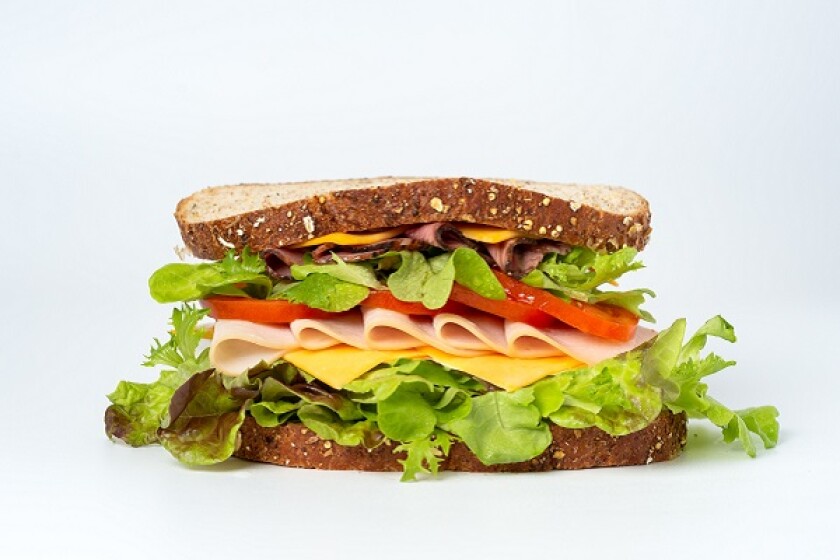The case on trademark application No. 2019726844, filed on June 5 2019, was recently considered by the Chamber of Patent Disputes. The chamber cancelled the decision of the examiner and registered the trademark in respect of goods in Class 30.
The examiner had earlier refused registration because according to him, the word element ‘Sandwich’ was not protectable for the claimed goods, as it pointed to the properties of the goods and was not distinguishable. The examiner also pointed out that the claimed designation was confusingly similar to an earlier filed trademark application, with priority of January 15 2019, in respect of the same goods in Class 30 (application No. 2019700838).

The applicant agreed that the word element of ‘Sandwich’ can be disclaimed but did not agree with the conclusion of the patent office telling him that the claimed designation and the cited trademark were confusingly similar. The applicant argued that the overall impression made by the compared designations was remarkably different.
Besides, phonetic similarity is conditioned by the inclusion of the word element ‘Sandwich’ in the compared designations, while the conclusion on similarity of the word elements should not be made on the basis of non-protectable elements.
The Chamber of Patent Disputes considered the applicant’s argument and pointed out that the cited designation is combined, as it consists of the words ‘Dark Chocolate’ and ‘Selected Fruits’ in small font, located in the background. This was in addition to the word element ‘Sandwich’ in big font occupying a central position in the designation with some figurative elements such as fragments of a peach, raspberries and a stylised image of a cross section of a bonbon. Protection was sought for Class 30.
The claimed designation was a word element ‘Knoppers Sandwich’, in which the word element ‘Sandwich’ is disclaimed. Thus, the word element ‘Knoppers’ plays the individualising role in the claimed designation.
The cited combined designation features the word element ‘Sandwich’ that dominates in the cited designation, as well as smaller word elements ‘Dark Chocolate’ and ‘Selected Fruits’.
The Chamber of Patent Disputes took into account the fact that on the date of considering the appeal, there had been a refusal of registration issued in respect of the cited designation on application No. 2019700838 (see the image above).
The official action of refusal had been based on Article 1483 of the Civil Code because non-protectable elements dominated in the designation, i.e. naturalistic images of confectionary, small fruits, word elements ‘Dark Chocolate’ and ‘Selected Fruits’ and yet another word element ‘Sandwich’.
When similarity of word elements is examined, the similarity of ‘strong’ word elements should be taken into account, i.e. words capable to individualise the goods of the manufacturer and distinguish the goods of one manufacturer from those of another manufacturer. Comparison of the designations in question shows that only the word element ‘Sandwich’ is the same in the compared designations, however both are disclaimed, in the applied and the cited designations. In the absence of other similar characteristics, it is not possible to assert their similarity.
When examining the basic individualising element of the claimed designation, i.e. the word element ‘Knoppers’, one should state that there is not even a single element of similarity (phonetic, semantic or graphic).
The general visual impression made by the compared designations is different too, because the claimed designation is a word in standard font without any graphic elaboration. The cited designation is combined and includes a composition of word elements in different font and also some graphic element.
Hence, despite presence of the same element ‘Sandwich’ in the compared designations they are non associated with each other in general because there is a number of individualising elements. Thus granting protection on application No. 2019726844 is in accordance with the law and protection may be granted in respect of all goods in Class 30 with the inclusion of the word ‘Sandwich’ as an unprotected element.
Incidentally, the applicant could have avoided banding arguments with the examiner and the chamber, if he had coined the word ‘Sandwitch’ and thus added some enigmatic tinge to the designation.
Vladimir Biriulin
Partner, Gorodissky & Partners












